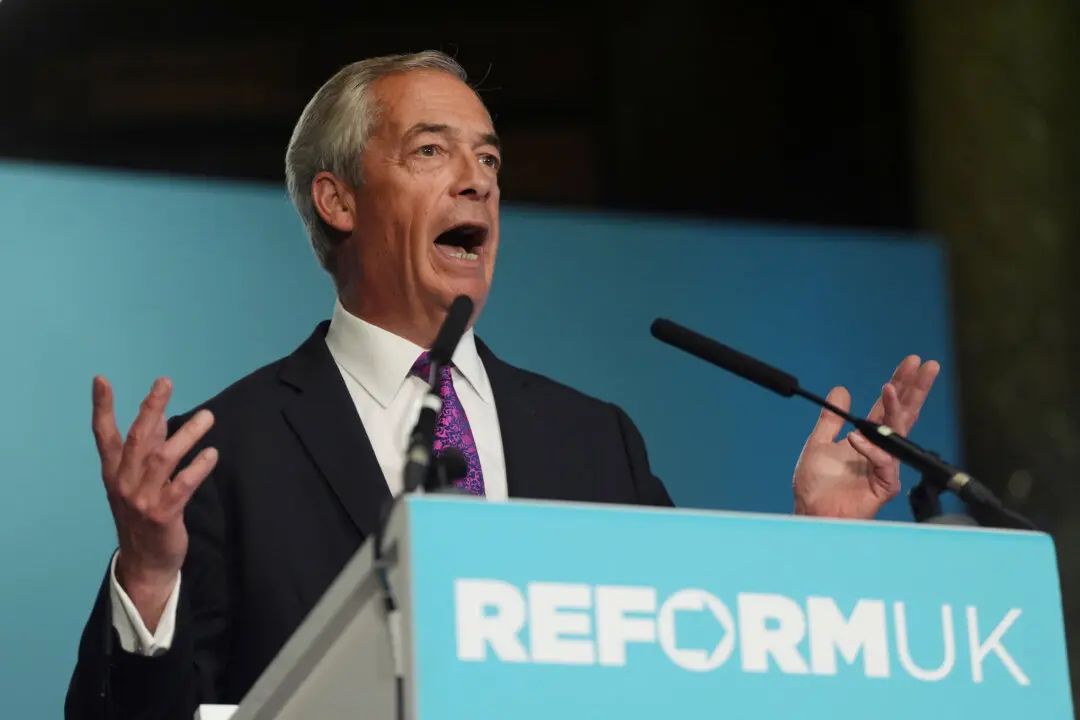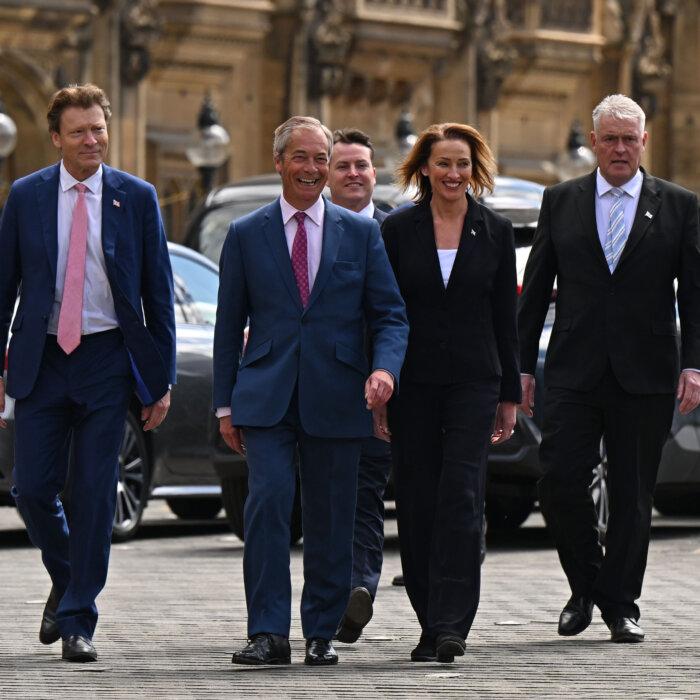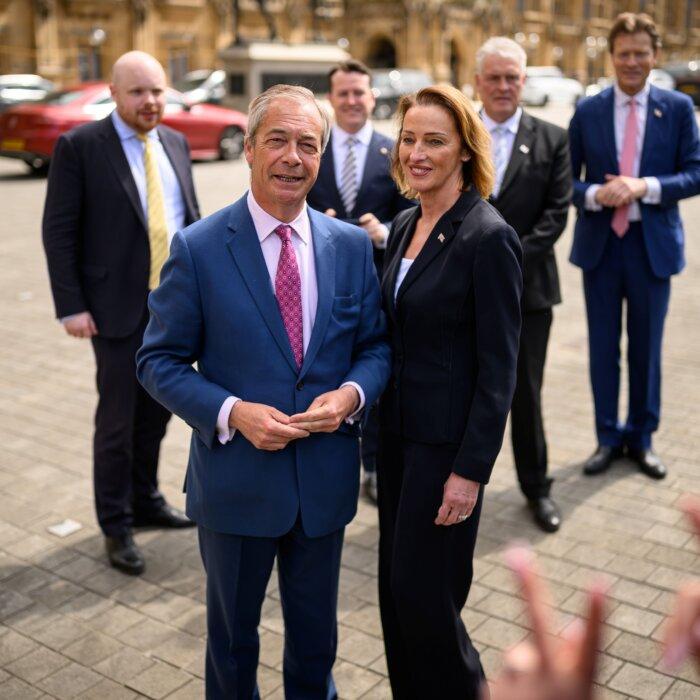Nigel Farage has pledged to scrap the two-child benefit cap and restore the winter fuel payment, adding he could become prime minister at the next general election.
Speaking at a press conference on Tuesday, the Reform UK leader, whose party made a dramatic breakthrough in the May local elections, said that “something extraordinary” is unfolding in British politics.
He argued the Conservative Party is “done” and “no longer a national party,” adding that Labour is “terrified” of Reform’s rise.
The May local election results appear to support Farage’s claims. Reform made a dramatic breakthrough, winning more than 600 council seats, taking control of 10 councils, and securing a mayoralty in Lincolnshire.
Reform is also surging in voting intention surveys, polling ahead of Labour, the Liberal Democrats, and the Conservatives.
While his party is experiencing a surge in the polls, Farage’s personal popularity continues to trail behind his party’s momentum.
Starmer is backed by 44 percent of respondents, compared to 29 percent for Farage. That gap has widened since February, when Starmer polled at 36 percent and Farage at 26 percent.
The polling divide comes as Labour faces mounting pressure to address migration and the use of asylum hotels, both of which are key issues Farage has heavily targeted.
Child Benefit Cap
On Tuesday, Farage said he would take part in a head-to-head debate with Starmer. He said Reform represents “working people,” adding that many of its supporters are “people with alarms who go off to work every morning.”The policy, brought in by the Conservatives in 2015, limits financial support for families with more than two children.
Reform would abolish the cap not to support a “benefits culture,” but to back low-paid working families, Farage said. He added the plan is for British citizens, not migrants, and confirmed there would be no cap on the number of children.
Groups such as Unicef UK and the National Education Union have long criticised the cap. They warned it pushes families into poverty. Some estimates suggest that ending the policy could lift up to 350,000 children out of hardship.
But the cost is a key issue. The Resolution Foundation says it could cost up to £3.5 billion a year by the end of this Parliament.
In more recent comments, Education Secretary Bridget Phillipson told “BBC Breakfast” on Tuesday that tackling child poverty is the government’s “moral mission.”
“We’ll set it all out later on this year, in the autumn. I think it’s important that we get it right,” Phillipson said.

Restoring the Winter Fuel Payment
Farage has pledged to reverse recent cutbacks to the winter fuel payment for all pensioners, suggesting that both Labour and the Conservatives neglect older voters.Chancellor Rachel Reeves is expected to address the issue in the upcoming spending review, though she has not yet explained how any changes would be funded.
Labour Faces Economic Policy Tensions
The Labour government is also grappling with internal tensions over economic policy. A leaked memo from Deputy Prime Minister Angela Rayner, reported by The Telegraph, revealed disagreements with Reeves on welfare and taxation.While Rayner appears to favour a more expansive economic approach, Reeves remains focused on fiscal rules set in the Autumn Budget and her promise to not raise taxes further.
In turn, Farage proposed raising the income tax threshold to £20,000 and introducing a transferable tax allowance for married couples.
“These proposals are expensive but we genuinely believe we can pay for it,” he said.
He said the funding would come from scrapping net-zero climate measures, ending hotel stays for asylum seekers, eliminating public sector diversity initiatives, and cutting the number of taxpayer-funded quangos.
Migration Stance Reaffirmed
Labour’s recent shift towards stricter migration policy—including the pledge to end the use of asylum hotels—comes as Reform doubled down on its own stance.Farage said asylum seekers should be removed from hotels and called for a complete overhaul of the existing migration system.
He described Channel crossings as a “threat to national security” and labelled the current asylum process “unfair, wrong, and dangerous.”
He also reiterated the need for stronger border enforcement and national sovereignty.







